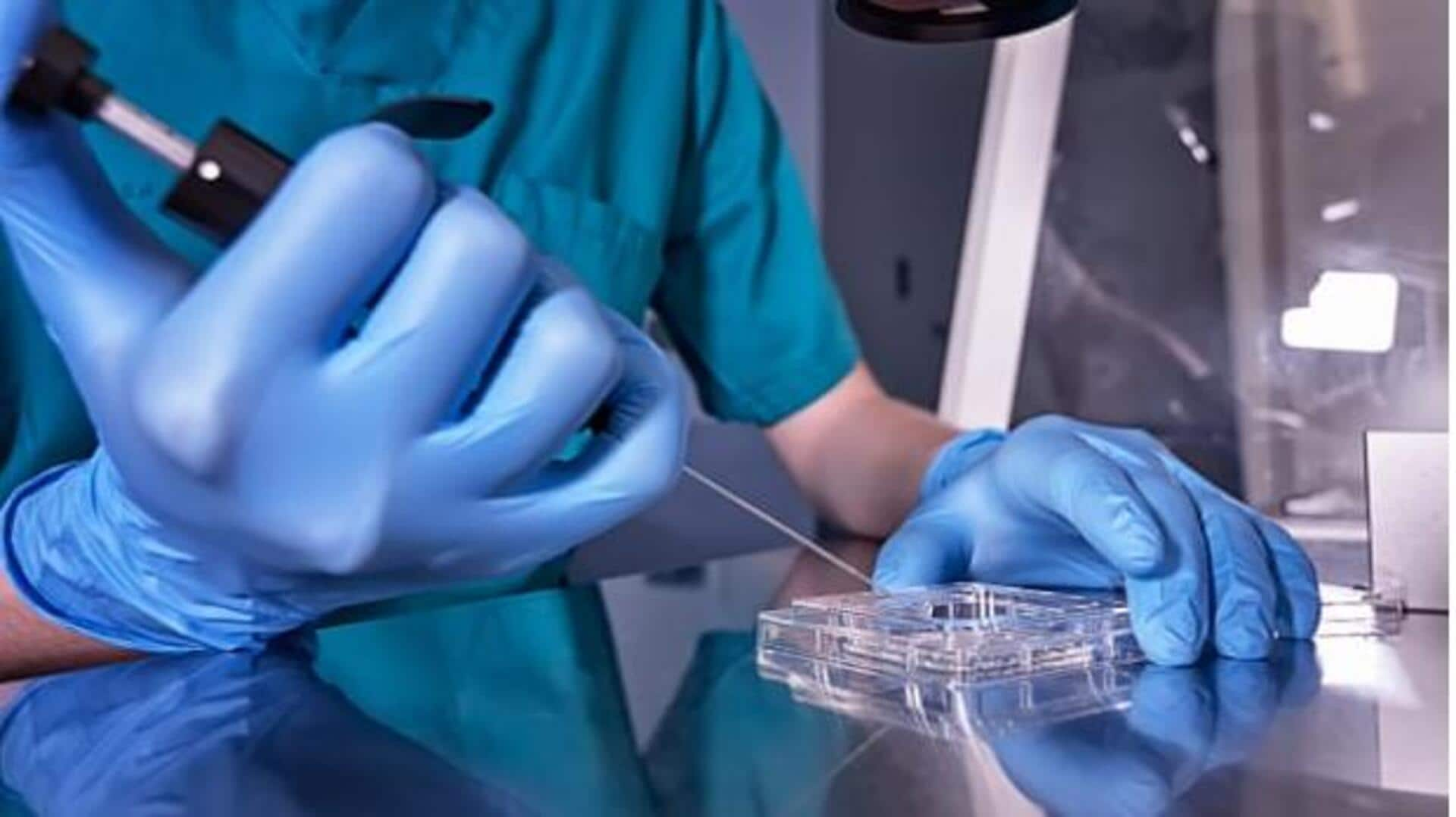
Human sperm, eggs may soon be grown in labs
What's the story
Scientists are making significant progress toward creating viable human sex cells in laboratories, as per the Guardian. The groundbreaking work is being led by Professor Katsuhiko Hayashi, a developmental geneticist at the University of Osaka. He said that quick progress is being made toward transforming adult skin or blood cells into eggs and sperm through a process called in-vitro gametogenesis (IVG).
Technological advancement
Revolutionizing fertility treatments
The development of lab-grown sperm and eggs could revolutionize fertility treatments, making it possible for anyone, regardless of age or fertility status, to have biological children. This technology could even extend to same-sex couples. Hayashi's lab has already created mice with two biological fathers, hinting at the potential of this innovative approach in human reproduction.
Future implications
Lab-grown eggs could help women have children at older age
Matt Krisiloff, CEO of Conception Biosciences, a California-based start-up working on this technology, said lab-grown eggs could be a major development in the future. He emphasized that this could permit women to have children at an older age and might be the best solution to counter population decline. Meanwhile, Hayashi's team has made strides by creating primitive mouse sperm cells in a lab-grown testicle organoid and developing a human ovary organoid.
Developmental journey
How the IVG process works
The IVG process starts with genetically reprogramming adult skin/blood cells into stem cells, which can develop into any cell type in the body. These stem cells are then guided to become primordial germ cells, the precursors of eggs and sperm. The next step involves placing these germ cells into a lab-grown organoid that emits biological signals to guide their development into mature eggs or sperm.
Timeline
Hayashi estimates lab-grown human sperm in 7 years
Hayashi estimates that lab-grown human sperm could be available in about seven years. He also said that creating sperm from female cells would be "technically challenging, but not impossible." Other experts have also agreed with this timeline, saying that we could see eggs/sperm generated from immature cells in the testicle or ovary within five to 10 years.
Ethical considerations
Safety concerns over use of lab-grown cells
Despite the rapid progress, there are still safety concerns over the use of lab-grown cells in fertility treatment. The Human Fertilisation and Embryology Authority (HFEA) in the UK is already looking into how to ensure the safety of these cells before they can be used clinically. Hayashi has also expressed his concerns about using this technology for older women or same-sex couples due to possible higher safety risks.